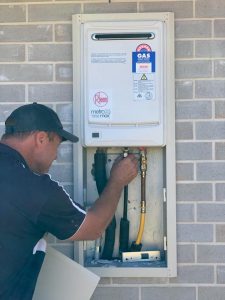Tackling the Usual Hot Water Heater Emergency Challenges
Tackling the Usual Hot Water Heater Emergency Challenges
Blog Article
Are you looking for advise around The Importance of Water Heater Maintenance?

A hot water heater is among one of the most crucial standard home appliances that can be found in a residence. With hot water heater, you don't require to undergo the tension of heating water manually every single time there is a need to wash, do the laundry, or the recipes. There is always a possibility that your water heating system would certainly act up as with most mechanical tools.
It is essential to keep in mind any little malfunction and tackle it promptly before points get out of hand. The majority of times, your water heater starts to malfunction when there is an accumulation of sediments as a result of continual use. As a preventative measure, routine flushing of your hot water heater is advised to avoid debris buildup as well as stop useful failing.
Common water heater emergency situations and exactly how to take care of them
Too little hot water
It might be that the water heating system can not sustain the hot water demand for your house. You might update your water heating unit to one with a bigger ability.
Fluctuating water temperature level.
Your water heating unit might start producing water of different temperature levels typically ice hot or cool warm. There may be a need to change either the thermostat or the heating device of your water heating system.
Leaking water heater container.
In this circumstance, you should turn off your water heating system, allow it to cool down, and also carefully look for the resource of the problem. At times, all you require to do is to tighten a few screws or pipeline connections in cases of minor leakages. If this doesn't function and the leakage lingers, you might require to use the services of a technician for an appropriate replacement.
Blemished or odiferous water
You need to understand if the concern is from the tank or the water resource when this takes place. If there is no funny odor when you run cold water, then you are specific that it is your hot water heater that is faulty. The smelly water can be caused by rust or the build-up of microorganisms or debris in the water heater tank. You can attempt flushing out your storage tank or changing the anode if the trouble lingers once you discover this. The function of the anode is to clear out germs from your storage tank. Considering that the anode pole substitute calls for a detailed expertise of your water heating system, you will require the help of a specialist.
Verdict
Some house owners neglect little warning and minor faults in their hot water heater system. This just brings about more damage and a possible complete malfunction of your device. You must handle your water heater mistakes as soon as they come near prevent even more costs and unneeded emergency difficulties.
With water heaters, you do not require to go through the stress of home heating water by hand every time there is a need to take a bathroom, do the washing, or the meals. It may be that the water heating unit can't sustain the warm water demand for your home. Your water heating unit could begin creating water of various temperatures usually ice hot or chilly hot. If there is no amusing smell when you run chilly water, then you are particular that it is your water heater that is damaged. The smelly water can be caused by corrosion or the buildup of germs or sediments in the water heater storage tank.
Common Water Heater Issues and What You Should Do
What Type of Water Heater Do You Have?
Before we begin it’s first important that you identify the type of water heater you have on your property. There are two main types of water heaters out there: conventional and high efficiency.
Both of these types of products typically use either gas or electricity to heat power. There are also solar water heaters that use a thermal collector on the roof or yard to heat the water.
While these models are not as common, they can cut heating costs in half. In this article, we will focus on conventional and high efficiency.
How Do My Electric and Gas Water Heater Work?
Though they look similar, electric and gas water heaters work very differently. It’s important to know their basic function because often problems can be specific to the heating source.
In the electric model, a thermostat on the side of the machine detects the temperature of the water in the tank. When the temperature needs to rise electricity flows to a heating element suspended in the water.
Gas models also use a thermostat device — typically with a mercury sensor at the tip and an additional sensor called a thermocouple. The thermocouple detects whether the pilot light is on and controls the flow of gas.
When the thermostat drops below the appropriate level gas is released which becomes ignited by the pilot light. The flame heats the bottom of the water tank which causes hot water to rise and cold water to drop.
This natural circulation continues until the water reaches the desired temperature. Then, the thermostat triggers the gas control valve to shut off the flow of gas.
What Are the Most Common Issues and How Do You Fix Them?
https://happyhiller.com/blog/common-water-heater-issues-and-what-you-should-do/

We had been made aware of that editorial about The Importance of Water Heater Maintenance through someone on a different website. I beg you set aside a second to share this entry if you liked it. We thank you for reading our article about Warning Signs You Need Water Heater Repairs.
Certified emergency plumbing assistance available. Report this page